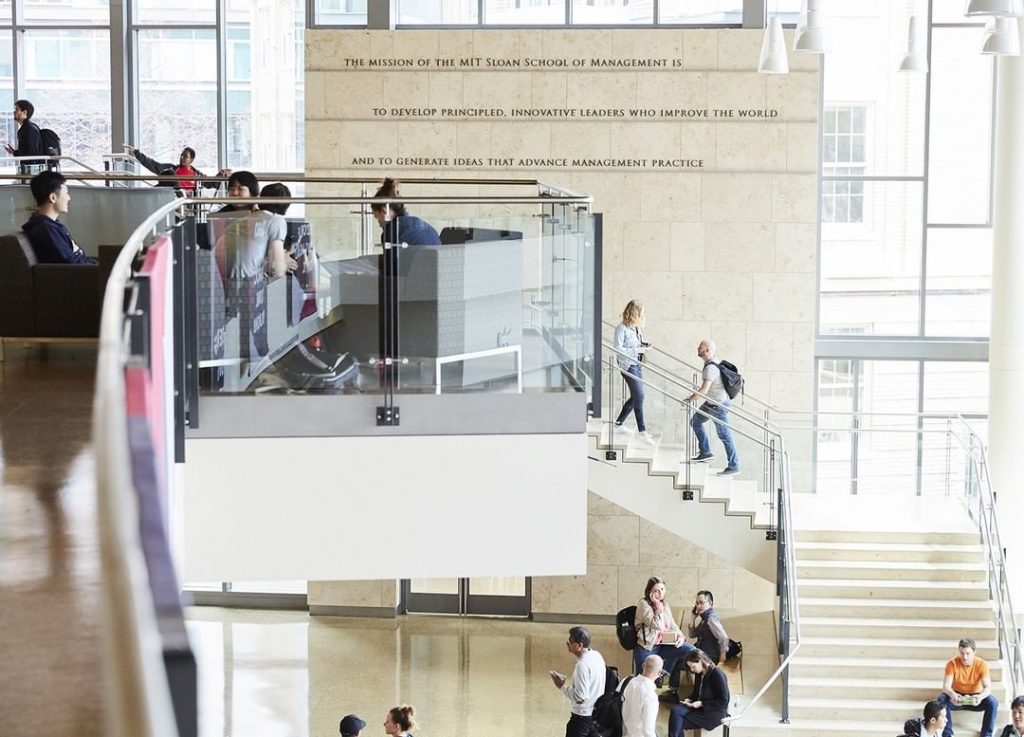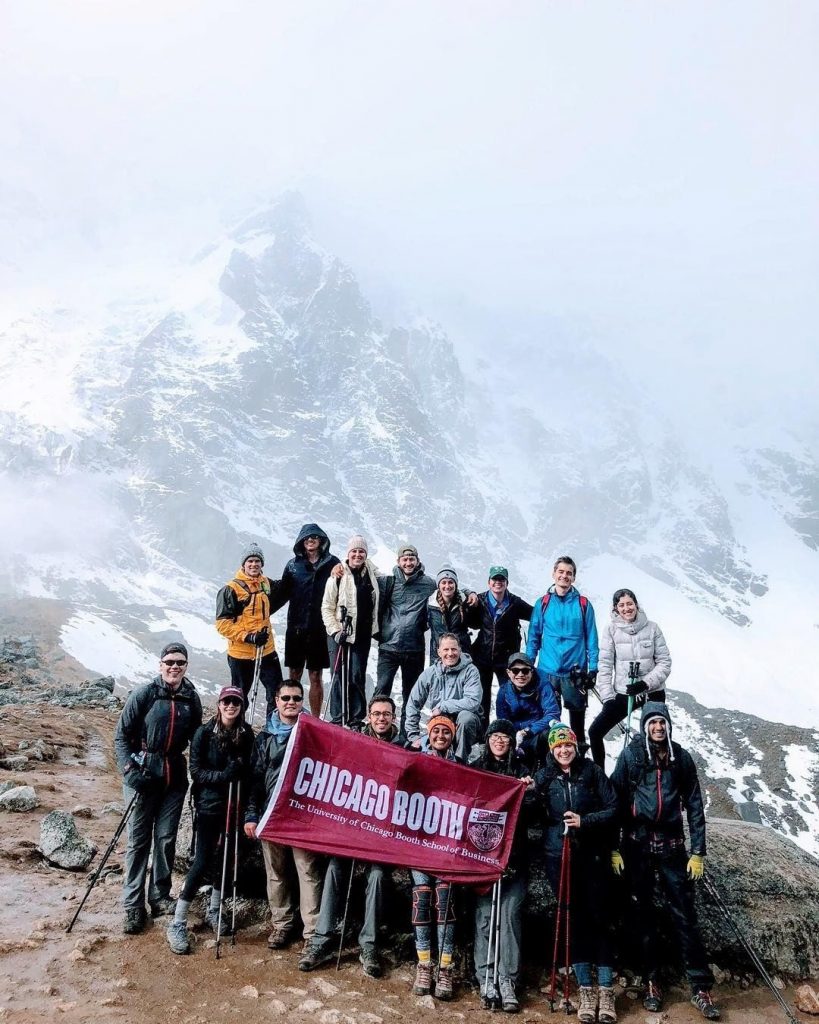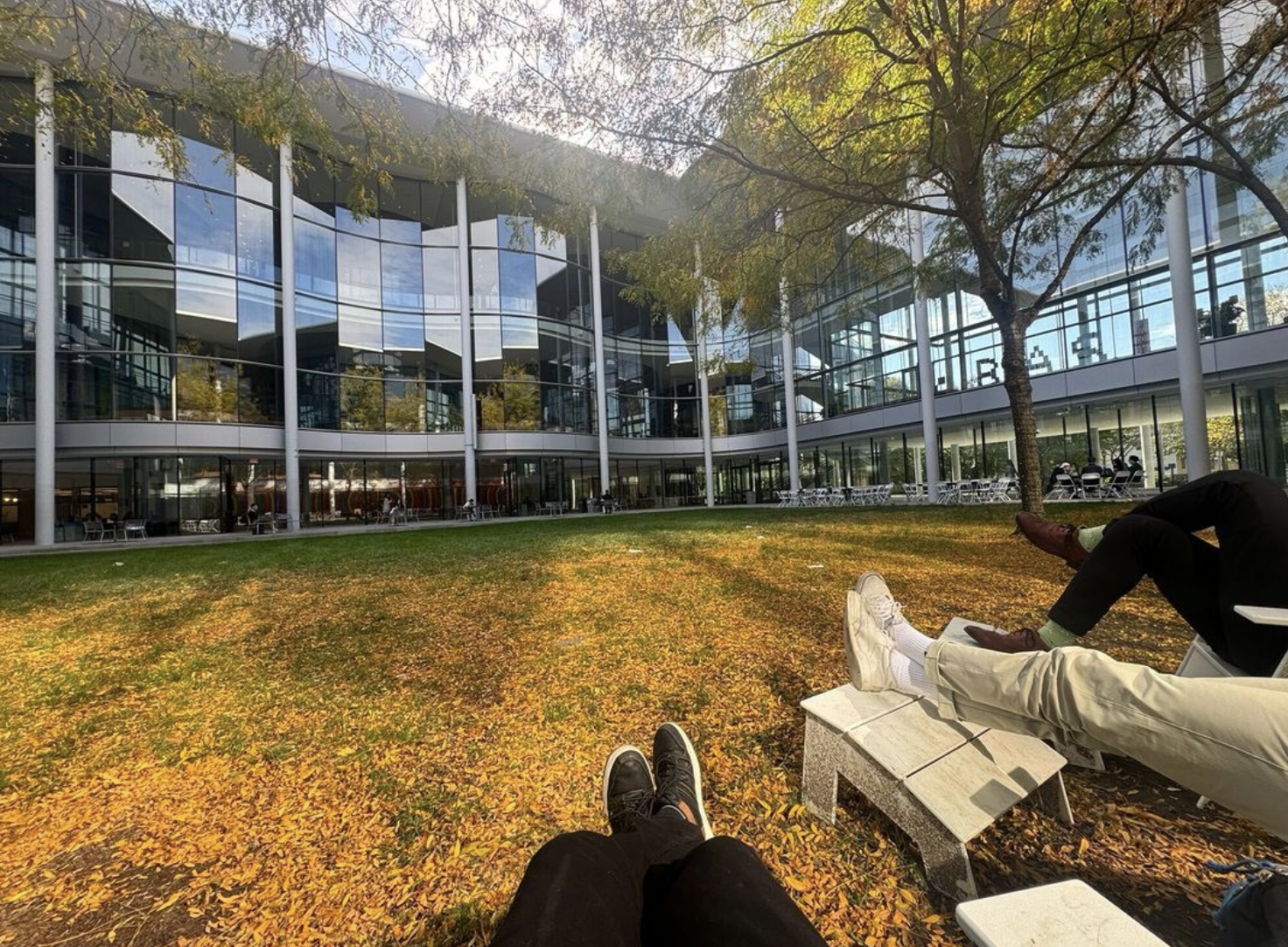UPDATE: This article was originally posted on November 22, 2018. It has been updated with 2024/25 information and tips below.
After spending months fine-tuning your MBA application essays, you’ve finally received that long-awaited interview invitation — only to discover that now you need to write more essays!
Though not all schools utilize interview essays – essays that are required only of candidates invited to interview – they have become increasingly popular in recent years. With more and more competitive candidates applying every year, elite MBA programs are always looking for new ways to distinguish the “admits” from the “dings.”
Though they may seem small and relatively unimportant at first, MBA interview essays are an important element of your overall application and should be carefully crafted. That’s why we’re sharing our top tips on how to approach and write your own MBA interview essays. By following these tips, you can ensure you stand out and land a spot at your dream school.
Harvard Business School’s Post-Interview Reflection
 Photo courtesy of @harvardhbs on Instagram
Photo courtesy of @harvardhbs on Instagram
Harvard’s post-interview reflection is perhaps the most well-known example of an MBA interview essay. Now with a suggested word limit, this open-ended question must be answered by all candidates that are selected to interview at HBS.
As part of the application process, you will be required to complete a Post-Interview Reflection. Here are a few details:
- The Post-Interview Reflection is not intended to be another formal essay. Think of it instead as a reflection after a meeting.
- We will be much more generous in our reaction to typos and grammatical errors than we will be with pre-packaged responses. Reflections that give any indication that they were produced before you had the interview will raise a flag for us.
- We do not expect you to solicit or receive any outside assistance with this exercise.
- Your Post-Interview Reflection is due within 24 hours of the conclusion of your interview. Let the interview soak in a little bit…no need to start writing your reflection right at the conclusion of your interview.
- There is a word guidance of 300-450 words for the Post-Interview Reflection.
How to approach your answer
Since you only have 24 hours after your interview to prepare the essay, you might be tempted to write out your answer in advance and then make small adjustments later on.
DON’T.
I personally love HBS’ admissions process because the school is incredibly clear and transparent about its expectations. For your essay, they couldn’t make it clearer that a pre-packaged answer will hurt your application:
“We will be much more generous in our reaction to typos and grammatical errors than we will be with pre-packaged responses. Reflections that give any indication that they were produced before you had the interview will raise a flag for us.”
That’s because the Post-Interview Reflection (PIR) works best when it’s just that – a reflection on how your interview with the school actually went.
Though we’re sure you diligently prepared for your big day, interviews have a way of going a little differently than expected.
Last year, for example, our client Nathalia’s interview was so focused on her new international job that she only later realized she’d never told her interviewer her reasons for wanting to attend Harvard. In her PIR, she was able to address this topic, as well as a few other points mentioned in the interview that she wanted to further expand/clarify upon.
This approach helped Nathalia get into HBS.
As such, the best strategy for your PIR is to do your best on interview day and then calmly assess your performance afterward. After reflecting, you should consider including the following elements in your PIR:
- A brief thank you for the opportunity to interview
- Any points you feel are relevant but were not able to discuss in the interview
- Any “mistakes” you’d like to correct or additional points you’d like to add
- How you feel you can contribute to the HBS community (if you were not able to mention this)
- Anything you learned about HBS during the interview or during your campus visit (if you interviewed in Cambridge)
- A closing paragraph that reinforces why you are so passionate about attending HBS.
Essentially, after reading your PIR, the admissions committee at HBS should be convinced that you deeply reflected on your interview and your place in the HBS community, demonstrating you are exactly the type of candidate they are looking for!
Finally, though the HBS admissions committee states that they are more understanding of spelling and grammar errors, try to run your essay through software like Grammarly to avoid any unnecessary mistakes.
MIT Sloan’s Interview Essays

Photo courtesy of @mitsloan on Instagram
MIT Sloan has also long required candidates who are called to interview to submit an additional essay. This year, MIT Sloan’s interview question is as follows:
REQUIRED QUESTION #1 (DIVERSITY)
The mission of the MIT Sloan School of Management is to develop principled, innovative leaders who improve the world and generate ideas that advance management practice. We believe that a commitment to diversity, inclusion, equity, and well-being is a key component of both principled leadership and sound management practice.
In 250 words or less, please describe a time when you contributed toward making a work environment or organization more welcoming, inclusive, and diverse.
How to approach your answer
At MIT, diversity is a core value. This means that at Sloan, you’ll constantly interact with people who think and act differently than you do.
Succeeding in such an environment requires a great deal of adaptability and flexibility, as well as a willingness to learn from those who are different. This type of environment, however, is not for everyone, which is why MIT seeks to gauge how you respond to diversity in this essay.
We suggest you start by considering the brand you are presenting to MIT and examine which examples about diversity you can share that will add value to the stories you told in your cover letter and video. Then, make sure you narrow this list down to your single best story. In a 250-word essay, you won’t have time to fully explore multiple examples, so limit yourself to one killer story.
REQUIRED QUESTION #2 (DATA)
We are interested in learning more about how you make data-driven decisions and communicate results. Please select one of the following prompts to respond to.
- Please select an existing data visualization and in 250 words or less explain why it matters to you. The data visualization should be uploaded as a PDF. Examples may come from current events, a business analysis, or personal research (e.g. climate change, COVID maps, etc).
- In 250 words to less, please describe a recent data-driven decision you had to make, and include one slide presenting your analysis. The slide may include a data visualization example and should present data used in a professional context. Your slide must be uploaded as a PDF.
How to approach your answer
Considering how short the MIT application is, you should also use this as another opportunity to add something new to your application.
With this question, MIT seeks to understand how you are able to use data to make important decisions. MIT states that this example should come from data used in a professional context, so keep this in mind. When designing your slide, remember that you’re being judged on how you present the information visually, not on the data itself.
In your essay, make sure to explain how you analyzed the data and used it to make a decision. If you are not able to show how you applied the insights gained from the data you presented in a clear, concrete way, you may want to consider a different approach.
If you don’t have a job that requires you to use data on a regular basis, question 1 would be a better fit for you. If you do use data frequently at work, question 1 may still be a good option, but showing a real and measurable way in which you used data to make a decision is an excellent way to show the adcom you possess a great fit with their program.
TOP TIP: Make sure not to share confidential information. If you need to “sanitize” the data, this is acceptable.
Chicago Booth’s Pre-Interview Video Essay

Photo courtesy of @chicagobooth on Instagram
For several years running, Booth has asked candidates who move to the next application phase to submit additional materials before the interview. Like last year, you’ll need to submit your response in video format.
Please submit a video response to one of the following two prompts:
- Tell us about something new you learned recently that shifted your worldview. How did it influence your behavior and/or actions?
- What is something you wish people knew about you, but you’re not sure that they do?
Please note the following:
- The length of the video response should be no more than 60 seconds.
- You will not be evaluated on the styling and editing of the recording, only the content of your submission.
- Feel free to record the video with a cellphone, computer, or other video recording device.
How to approach your answer
The most important task is first considering which prompts you will choose from each category, especially considering there is space for repeating themes.
When looking at each category, choose the question that is both easiest to answer and that allows you to shed light on a new element of your profile. If you’ve already mentioned community service in one question, for example, perhaps avoid repeating community service as the theme in other answers.
Most importantly, consider what you want Booth to learn about you. Booth’s application – like its curriculum – is incredibly flexible, but it does mean that you can end up repeating themes from your essays unless you’re very careful and strategic in how you use each and every word the interview essays give you.
Then, after choosing your best stories, use a condensed version of the STAR methodology to walk your reader through what your example is before ending with a final lesson or takeaway.
TOP TIP: Start your video script by simply writing out the story and then refining the content/length. In our experience, applicants can comfortably speak 160-180 words in 60 seconds. You may also want to review some of these best practices to ensure you’re ready for your video debut.
Yale SOM’s Pre-Interview Quote
 Photo courtesy of @yalesom on Instagram
Photo courtesy of @yalesom on Instagram
This is the first year that Yale SOM has asked candidates to send additional information when they are called to interview, though their format is highly unusual compared to the other business schools.
Please submit a quote that has a special meaning or resonates with you. We ask that you submit this no later than 24 hours prior to your interview day.
How to approach your answer
Considering Yale SOM’s focus on values (after all, their essay question does ask you for the greatest commitment you’ve ever made), we see this as one more opportunity for you to demonstrate what motivates and drives your actions to Yale.
Since they specifically did not ask for an essay along with the quote, we would imagine that the quote will factor into your admissions interview. Likely, the admissions committee will ask you why you chose the quote you did, so think carefully about how you would approach the quote in this context.
As such, think about the story you might be able to connect to this quote and carefully consider how this story will add value to your profile. For example, if you volunteer, you may want to choose a quote that one of the people you helped said to you, as this can unlock the possibility to dive deeper into your extracurricular activities.
Make Sure You Succeed in Any MBA Interview
Though you might not be practicing for your interviews, your competitors are. When you’re competing at such an elite level (and top MBA programs are about as elite as it gets), practice is the only way to get the edge you need.
Working with highly-trained professionals, like our team of interview experts, can also be an excellent step to include in your interview process.
- Maybe you don’t know where to start preparing.
- Maybe you ramble on and lose your focus while answering.
- Maybe you’re concerned about making errors, discussing your strengths, or addressing weaknesses.
- Maybe you’ve downloaded interview guides or have spent hours reading interview report forums—but still have questions and doubts.
Our interview prep and practice service focuses on helping you determine what to highlight in your interview depending on the program while using appropriate, impact-driven language without being artificial, or worse, robotic. We also help you choose (and perfect) culturally appropriate examples based on the schools you’re interviewing for.
As our former client Helena said:
“My husband and I applied for an MBA at INSEAD this year. We knew it would not be easy since we had a very small window, were applying in the 3rd round and only wanted this specific school.
Ellin helped us with the preparations for the interviews and she really helped me organize my story, but the most special aspect was how Ellin inspired me to be more confident during the interviews. I would definitely recommend her to anyone interested in applying for an MBA!”
Don’t undersell your success. Set up your 1:1 interview prep and show that you belong at a top MBA program!
Real MBA Essays That Got People In
School-specific sample essays that got our clients accepted






